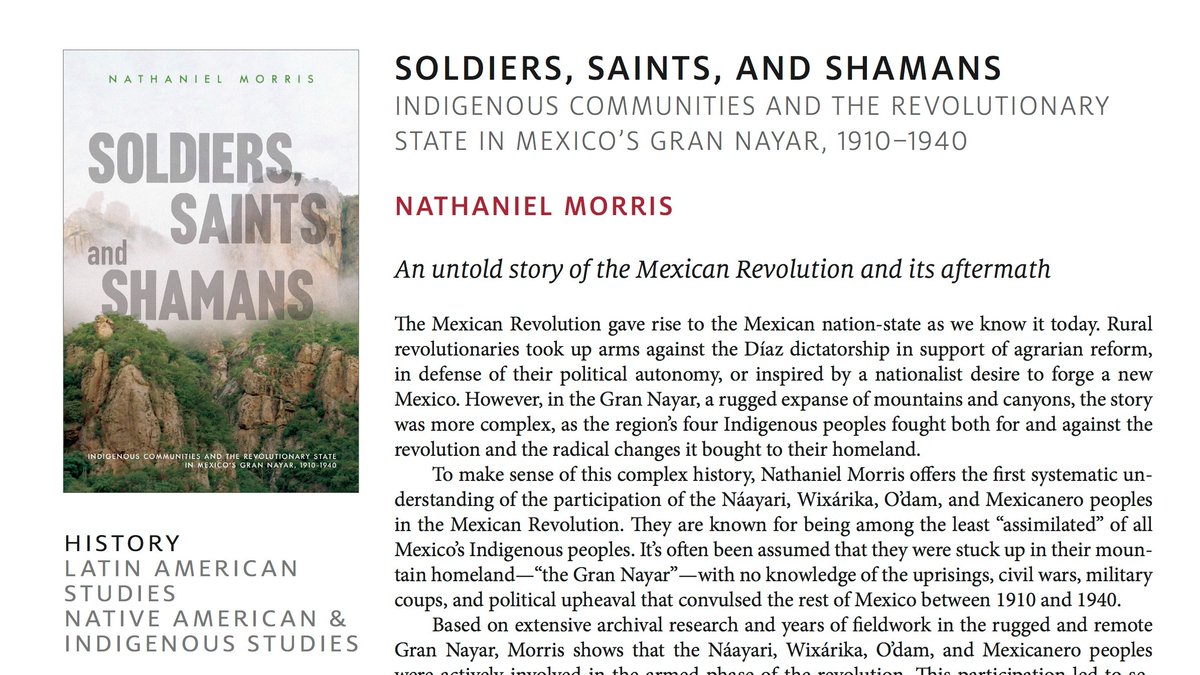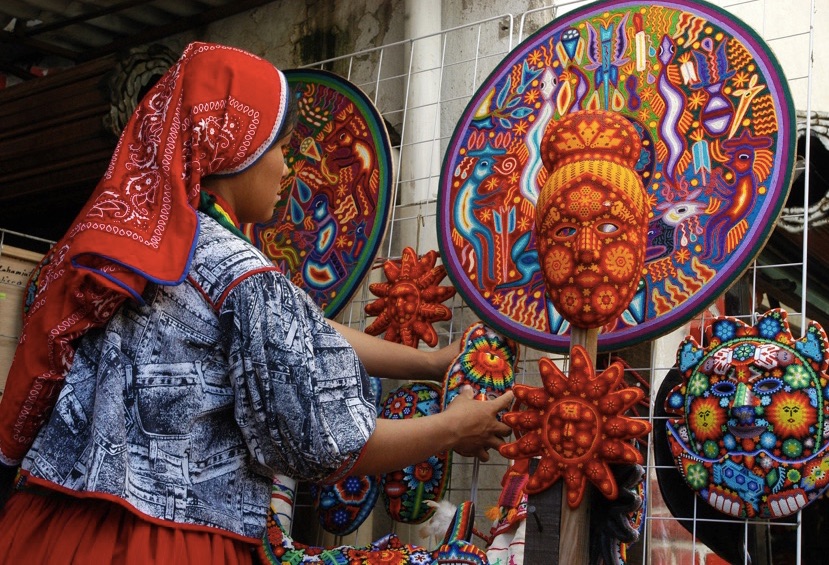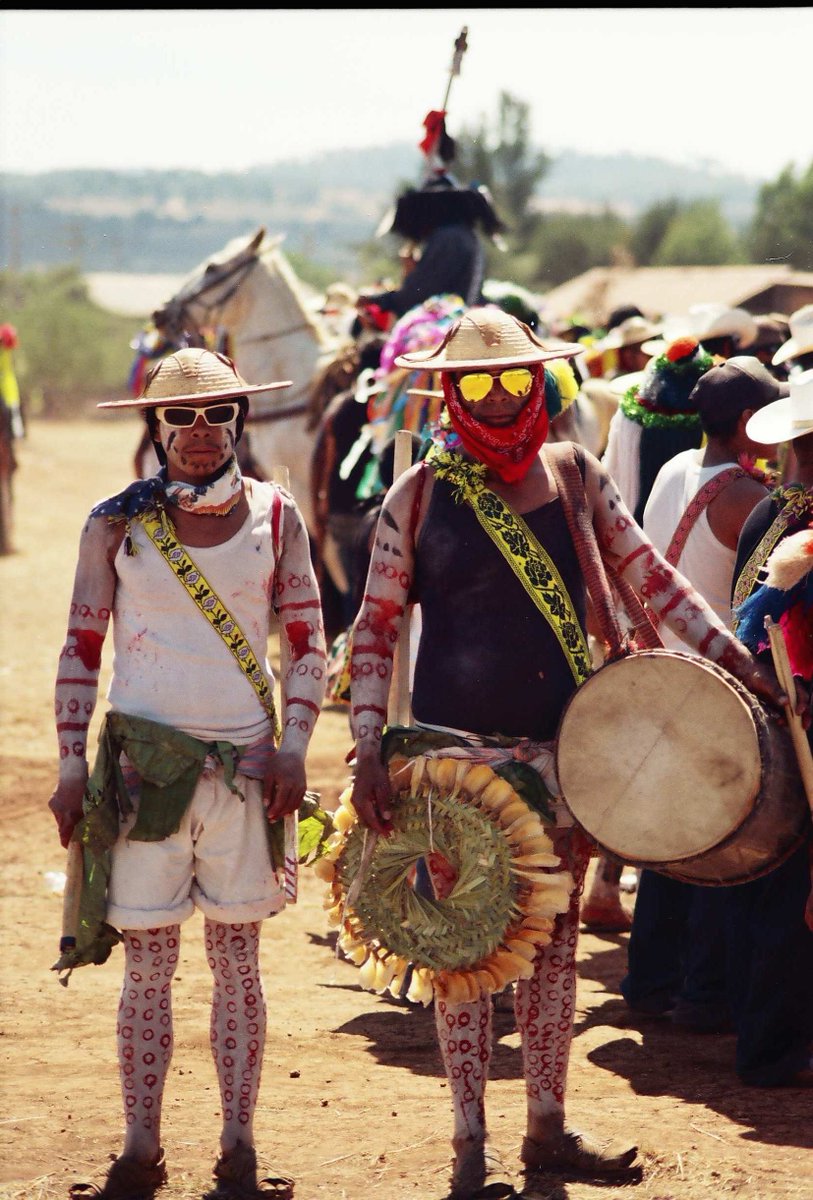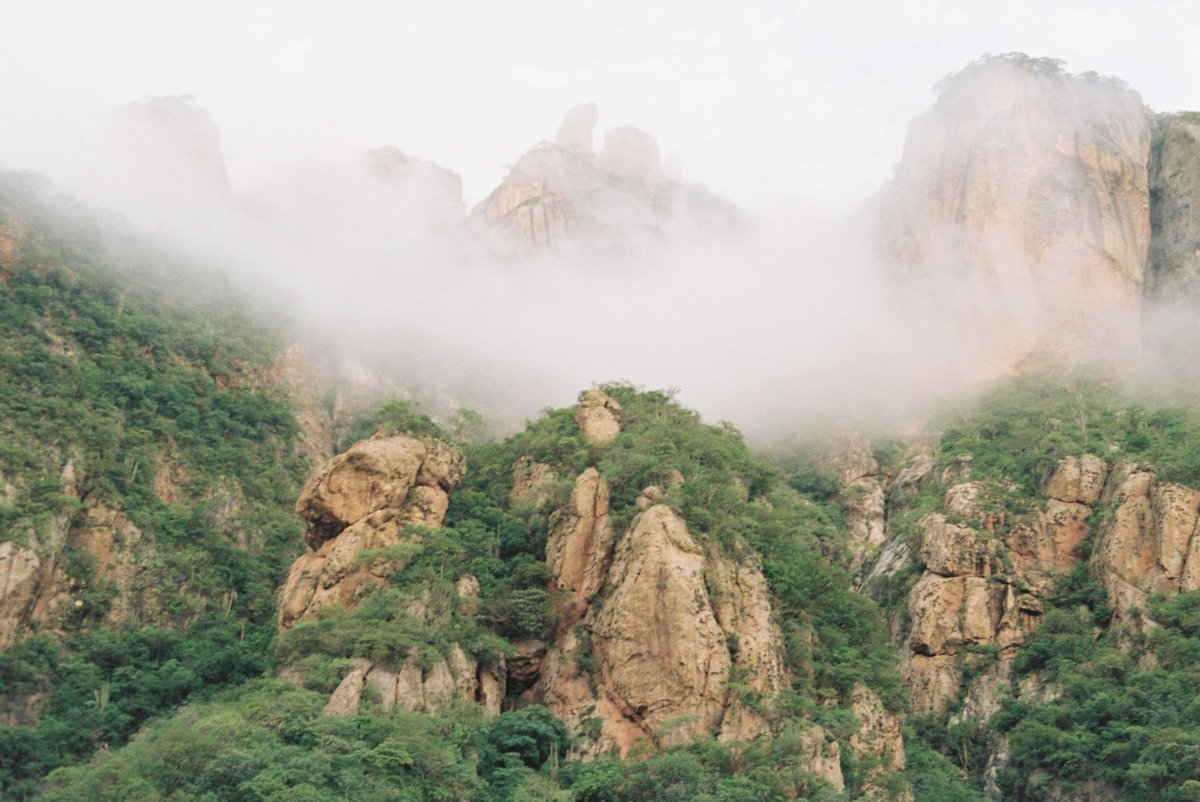Hard for me to believe it, but my book is 4 months old today! I do understand its not *actually* my kid, but I still want to mark the day – and how better, in a world of online everything, than with a celebratory twitter thread! So, whats it about and why should you care? Thread:
The book explores how four of the most culturally distinct and politically independent #Indigenous peoples in all of the Americas, took part in the first of the twentieth century’s great social #revolutions – *the Mexican Revolution*
The Revolution kicked off in 1910. Popular heroes like Pancho Villa and Emiliano Zapata led rebel armies of peasants and cowboys across desert plains and tropical mountains, to overthrow ageing dictator Porfirio Díaz in a quest to create a fairer and more equal country.
But even though the #Huichol ( #Wixárika) people are pretty famous nowadays, thanks to their sacred #peyote cactus, amazing art, and defense of #wirikuta. But no-ones ever looked deep at how they helped shape the Mexican Revolution, and in so doing were themselves changed forever
Their less famous cousins, the Cora (Náayari) (see pic  ), Tepehuano (O’dam), and Mexicanero peoples, have been subject to even less academic interest in general, and basically totally ignored when it comes to the Revolution in particular. So I figured I’d do the job myself.
), Tepehuano (O’dam), and Mexicanero peoples, have been subject to even less academic interest in general, and basically totally ignored when it comes to the Revolution in particular. So I figured I’d do the job myself.
 ), Tepehuano (O’dam), and Mexicanero peoples, have been subject to even less academic interest in general, and basically totally ignored when it comes to the Revolution in particular. So I figured I’d do the job myself.
), Tepehuano (O’dam), and Mexicanero peoples, have been subject to even less academic interest in general, and basically totally ignored when it comes to the Revolution in particular. So I figured I’d do the job myself.
During the many years it took to research this book, I spent months at a time living in Mexico’s #SierraMadre mountains. I walked, rode horses, and hitched rides in the backs of trucks, interviewing Wixárika, Náayari, O’dam and Mexicanero elders. I went deep into the archives too
So... why is any of this important? Well, what I found out poses some BIG challenges to popular ideas of the Mexican Revolution as being all about ‘liberating’ the poor, the marginalised, and the oppressed (which in Mexico means, in particular, Indigenous peoples)
For many Wixárika, Náayari, O’dam, and Mexicanero people, the Revolution meant a violent confrontation between an expansionist and oppressive state, and their own highly autonomous, democratic peasant communities; a clash between subsistence agriculture and capitalist development
Revolutionary educational programmes are often lauded for bringing literacy and ‘progress’ to rural Mexico. But they also involved the kidnapping of Indigenous children, attempts to wipe out Indigenous languages, and the violent repression of parents who didn’t agree with this.
Plus teachers were often abusive drunks ( ) who beat up Indigenous kids. Pissed-off parents resisted by burning schools and murdering teachers, and eventually led to non-Christian Indigenous people joining Catholic-inspired, mestizo-dominated rebel movements in the 1920s and 30s
) who beat up Indigenous kids. Pissed-off parents resisted by burning schools and murdering teachers, and eventually led to non-Christian Indigenous people joining Catholic-inspired, mestizo-dominated rebel movements in the 1920s and 30s
 ) who beat up Indigenous kids. Pissed-off parents resisted by burning schools and murdering teachers, and eventually led to non-Christian Indigenous people joining Catholic-inspired, mestizo-dominated rebel movements in the 1920s and 30s
) who beat up Indigenous kids. Pissed-off parents resisted by burning schools and murdering teachers, and eventually led to non-Christian Indigenous people joining Catholic-inspired, mestizo-dominated rebel movements in the 1920s and 30s
Similarly, the radical land reforms of left-leaning President Lázaro Cárdenas (1934-40), which proclaimed the liberation of the Mexican peasantry from social and economic oppression, caused territorial conflicts between local communities, which continue to cause violence today
These contradictions have parallels across the #GlobalSouth. My book offers theoretical insights into the causes and nature of clashes between indigenous groups and revolutionary movements in #Peru, #Nicaragua, #Colombia and even #Vietnam...
These insights have the potential to become all the more important today given the continued, and growing, importance of minority peoples – like the #Kurds, #Druze and #Tuareg – in so many of the conflicts wracking the world right now, eg. #syria, #mali, #burma and even #china
But for me, the most important thing about the book is that it's the first time the story of Wixárika, Náayari, O’dam, and Mexicanero people’s participation in the Mexican Revolution has been written down.
Continued and ever stronger cultural and political pressures on them today to ‘conform’ and ‘assimilate’ into modern Mexico and the ‘modern world,’ put oral traditions of the Revolution in danger of disappearing. Today, they are being taught to be *ashamed* of being Indigenous.
I hope this book, in some small way, helps them to keep hold of their history, helping younger Indigenous people in Mexico remember the ways in which *they and their ancestors* have shaped Mexico in important ways, and that this in turn makes them proud of being who they are.
So, if you’ve read to the end of this thread, and are into the prospect of reading a truly one-of-a-kind, epic history of war, revolution, banditry, magic, witchcraft and unprecedented social, political and economic change, why not buy yourself a copy here? https://uapress.arizona.edu/book/soldiers-saints-and-shamans

 Read on Twitter
Read on Twitter





